In the Trenches of the Facebook Election

For a profession locked in a perpetual psychodrama with Facebook, I think journalism underestimates Facebook. It’s not that journalists don’t pay enough attention to the site (god no, lol), just that, as a journalist, your perspective is obscured, and it’s difficult to conceive of Facebook from the outside. You experience it through your profile, your site’s official page, your stories, or your analytics suite. It feels both unfathomably more powerful than you and yet somehow all about you; your experience is acute and personal but so are the experiences of other users, which are therefore inaccessible. David Carr’s characterization of the media as wary of working as “serfs in a kingdom that Facebook owns” is doubly apt for its implication that Facebook’s kingdom can only be as large as the publishing world it is apparently subjugating.
This, maybe, is why journalists are so bad at seeing where they fit into the grand scheme of social media feeds — that is, that they now compete, head to head, with videos and games and comedy and posts from friends and family for a limited amount of attention. Believing that the dominant social software does not think you are in any way special is difficult to reconcile with the conventional wisdom that it also controls the future of your industry. Together, these ideas are fatal to the ego, and so they cannot both be true.
So I think this prediction, about the so-called Facebook Election, is reasonable:
At some point in the next two years, the pollsters and ad makers who steer American presidential campaigns will be stumped: The nightly tracking polls are showing a dramatic swing in the opinions of the electorate, but neither of two typical factors — huge news or a major advertising buy — can explain it. They will, eventually, realize that the viral, mass conversation about politics on Facebook and other platforms has finally emerged as a third force in the core business of politics, mass persuasion.
First of all, who knows, anything could happen, two years is a long time and the internet is an unstable place that could be completely overtaken by a fresh horror at any moment.
But SETTING THAT ASIDE: Ben Smith wrote this piece for BuzzFeed, where I used to work, which is one of the most successful publishers on Facebook, but that also has a healthy and pragmatic institutional understanding of the difference between the all-consuming social platforms and the websites that supply them with content. It is not boosterism to say that Facebook will matter to the 2016 election, in other words, but realism — a demonstrable possibility that everyone on the internet will have to deal with in their own way.
Less situationally aware publishers looking forward to the next election might also agree that Facebook will play an extremely important part in it, but only to the extent that they believe people will use it to share their stories. This is a comforting view: it preserves a familiar set of competitors, and imagines the near future to be a matter of slicing up a slightly bigger version of the same pie, served at a slightly larger version of the same table. Facebook is just a conduit through which rightful journalistic influence travels! Nothing to worry about, great job, etc.
But Smith suggests a different outlook, in the culmination of a decades-long shift:
What is beginning to dawn on campaigns is that persuasion works differently when it relies on sharing. It is a political truism that people are most likely to believe what their friends and neighbors tell them, a truth that explains everything from sophisticated and earnest door-knocking efforts to malign email-forward whispering campaigns. And the social conversation favors things that generations of politicians have been trained to avoid: spontaneity, surprise, authenticity, humor, raw edge, the occasional human stumble. (Joe Biden!) As mobile becomes increasingly central to the social web, I suspect that more voters in 2016 will be persuaded by a video in their Facebook mobile browsers than by any other medium.
This “third force,” an enormous and incoherent and unpredictable set of social media interactions, is neither inherently nor deliberately biased toward the existing media, political or not. Facebook’s attitude toward journalism is the same as its attitude toward everything else: The thing that grabs your attention and holds it the longest, that is most likely to be shared again, is the thing that wins the next slot in the endless algorithmic draw. And I’m not sure most existing journalistic media companies have reckoned with just how completely this diminishes their role in writing and perpetuating political narratives! (Last time around the political media was still writing “_____ Goes Viral” posts; today, what big story couldn’t you headline that way? What about in two years?)
So how does this Facebook election actually go? If 2008 election internet was all about checking blogs for aggregated gaffes and 2012 election internet was all about novelty Twitter accounts, what are we in for in 2016?
Some background: The most successful new-new media companies, in raw traffic terms, are the ones that create content meant primarily to be shared on Facebook — that is, sites that appeared in the last few years, and that would not exist at all, as concepts or as businesses, if not for Facebook. Some of them are Zynga-like media startups, such as PlayBuzz, which seems to be an extended experiment in social media story formats. The most common are just profoundly cynical general interest share mills, which you’ve probably seen in your Facebook feed by now (read this interview with the creators of Viral Nova for a vivid example).
Another breed of sites infuses its highly engineered posts with a deliberate ideology: Upworthy, arguably the first pure Facebook publishing experiment, promotes gentle-left activist causes and ideas. It pioneered the Facebook form, with teasing headlines, emotional hooks, the “curiosity gap,” etc. But it also pioneered, or refined, the concept of the rhetorical Facebook-sharing payload: Post one of its embedded videos, and you can show your peers that you are right-minded and progressive. Maybe even shame them a little!
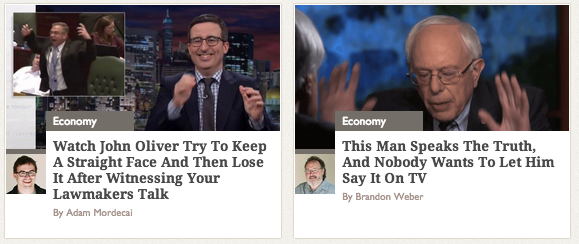
Many of these posts contain a conscious appeal to identity, which, in the context of new media companies, is a fairly fresh and powerful idea (though in politics, maybe the oldest). Some sites, BuzzFeed in particular, have played with identity through a focus on entertainment — “Ways You Know You’re A _______”, “Signs You Grew Up _______” — but Upworthy, founded by the former Executive Director of MoveOn.org (who also coined the term “Filter Bubble”), figured out how to apply it to progressive politics.
Among the many Upworthy clones, one stands out, in part for sitting at the other end of the American political spectrum:
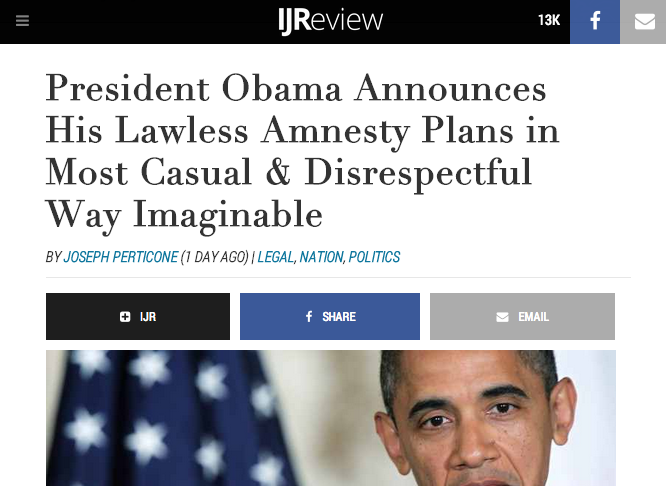
The Independent Journal Review landed big. It is currently the 14th-most-shared site on Facebook, a couple slots in front of MTV and CNN (Upworthy, still enormous, no longer ranks in the top 25). It is brashly and proudly conservative, offering charged and familiar right and center-right takes on the news of the day, along with feel-good videos of a slightly different flavor than Upworthy’s: stories of prayers answered versus stories of oppression overcome; tales of values upheld over examples of odds beaten. The difference, when it comes to positive content, is mostly a manner of sensibility — IJR and Upworthy both recognize just how many people want to share things that make them feel good and, just as importantly, understood.

In the context of a customized feed, where each story is algorithmically selected based on the likelihood that you will engage with it, content-marketed identity media speaks louder and more clearly than content-marketed journalism, which is handicapped by everything that ostensibly makes it journalistic — tone, notions of fairness, purported allegiance to facts and context over conclusions. These posts are not so much stories as sets of political premises stripped of context and asserted via Facebook share — they scan like analysis but contain only conclusions; after the headline, they never argue, only reveal. You don’t post a stunt video headlined “ISIS-Flag Waving Man Shouts Propaganda at a College. No One Cares. Then He Pulls Out Another Flag…” to let people know that the stunt occurred, or to convince other people of anything in particular. You share it because it confirms your beliefs about higher education, or liberals, or your ideological opponents’ attitude toward the Middle East. (This is the most-shared article on IJR right now, with nearly 300k Facebook shares.)
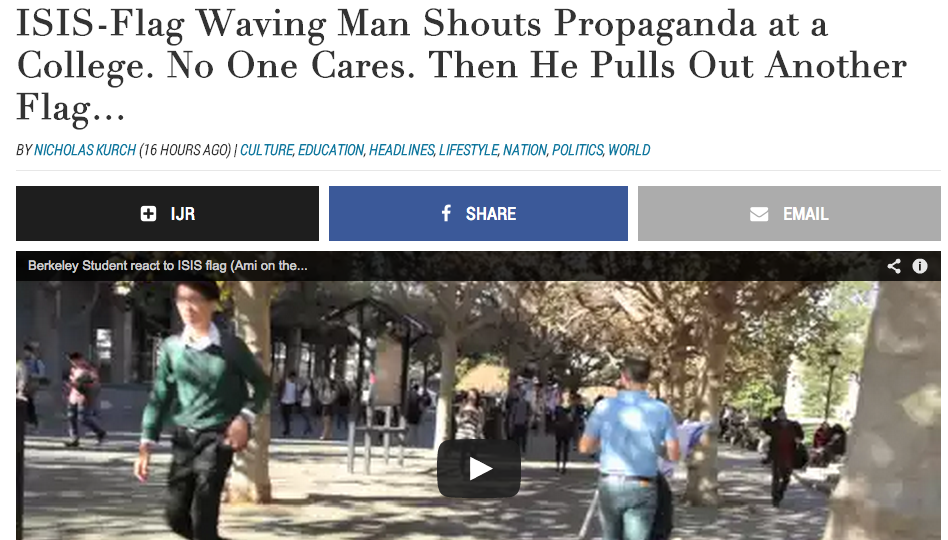
Partisan media has always done well online, but Facebook puts a large casual partisan audience within reach of anyone willing and able to scoop it up. When this audience starts paying a little more attention, as the election heats up and its fringe voices inevitably creep inward, they will be looking for things to share. Upworthy and IJR and countless similar sites will be waiting, ready to help them show their Facebook friends Where They Stand.
Among those similar sites will be Western Journalism, a smaller, more recently successful operation that has nonetheless become the 25th largest publication on Facebook. Western Journalism takes the social media identity site to its logical conclusion, offering readers a way to broadcast not just their views and political identities, but something a little darker.

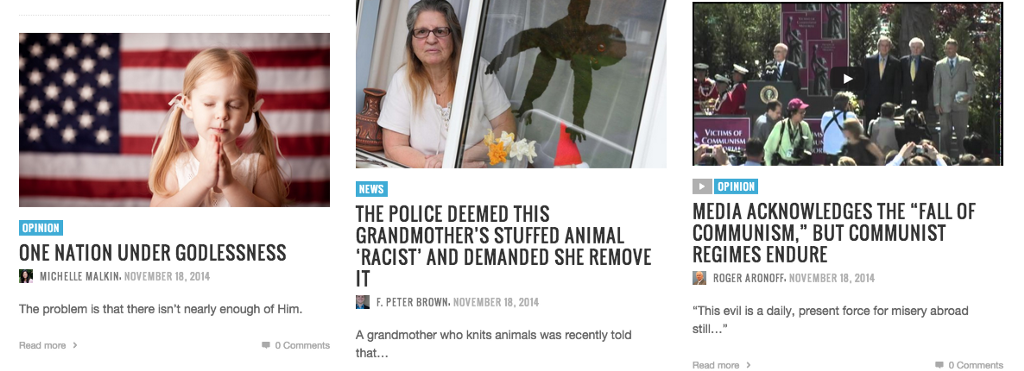
IJR has dabbles in this type of content, too — evocative, coded, intentional, and between you and me. It publishes an awful lot of stories about “thugs”:

But Western Journalism goes all the way, all the time. Even its name is coded. The site, according to its about page, is published under the auspices of the Western Center for Journalism:
WesternJournalism.com is a blogging platform built for conservative, libertarian, free market and pro-family writers and broadcasters by the Western Center for Journalism (WCJ).
The platform hosts hundreds of bloggers, and our content is widely distributed using social media. In 2013 WesternJournalism.com grew by 103% and served 41,486,142 page views to 13,479,014 unique visitors.
The foundation was established by Joseph Farah, arguably the most persistent of the Obama birther conspiracy theorists, and is run by the legendary and ruthless conservative operative Floyd Brown.
Farah — who founded WorldNetDaily — and Brown are neither web geniuses nor social content gurus. They are, however, seasoned and effective marketers of intoxicating ideas that answer intoxicating prejudices, and they recognize an opening when they see it. They are among the first in their cohort to realize the magnitude of the Facebook opportunity as it relates to conspiracy and insinuation. Chain letter culture has been bubbling beneath Facebook’s surface for years; if Western Journalism is any indication, it’s ready to have its moment, just in time for the election of the next leader of the United States of America.
In other words, for a perpetually organized set of political and quasi-journalistic organizations — the horrible influence apparatus that stirs every four years — 2016 will be less about attack ads and TV talking heads and Driving the Narrative than it will be about dog-whistling from the News Feed. 2016 will be about internet content that hits you by surprise and then tickles your lizard brain. Think of the PAC-written Upworthies! Imagine viral Swiftboating.
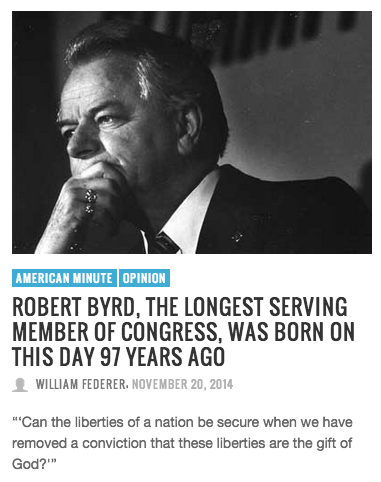

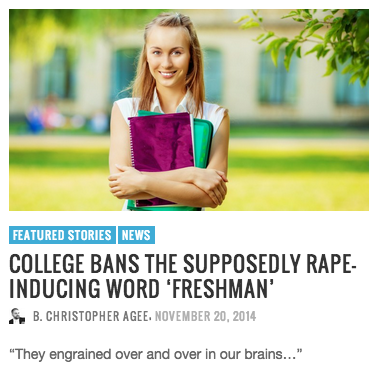
This effect will be felt more acutely if the current Facebook video trend bears out. Check your feed with an eye out for this: mine is already dominated by clips. Not posts about videos shared on Facebook, or YouTube videos embedded in Facebook, but videos uploaded directly to Facebook. At the time of writing, they comprise about half of the media in my feed: They’re short comedy sketches from BuzzFeed, animal clip compilations from the Huffington Post, news clips from the BBC, music clips from bands and DJs my friends follow, and strangely labeled viral comedy content that doesn’t obviously come from anywhere at all. They are staggeringly popular even for viral posts, which makes sense: The purpose of much of the written viral content over the last few years has been to convince readers to leave Facebook to watch a video, and now the videos are just right there, and start playing before you even know what you’re looking at. It’s all the grabbiness of social media with all the numbing qualities of television. It’s powerful.

It’s early days for Facebook video, and the stuff that seems to be working best right now conforms to things people simply like and like to think about themselves. It’s nice! It is also coming disproportionately from journalistic entities, even if it’s mostly not journalistic content; maybe they were just the first people to figure it out. But don’t confuse earliness for destiny: In video as in text, content is content. Just as headlines learned to shout and soothe and grab and affirm in that particular News Feed way, these short videos will adapt to their newer, louder, more competitive version of the internet attention market — a market that feeds the political conversation, ads and smears and analysis and news and all, through a single, flat stream.
The ᴄᴏɴᴛᴇɴᴛ ᴡᴀʀs is an occasional column intended to keep a majority of ᴄᴏɴᴛᴇɴᴛ coverage in one easily avoidable place.
